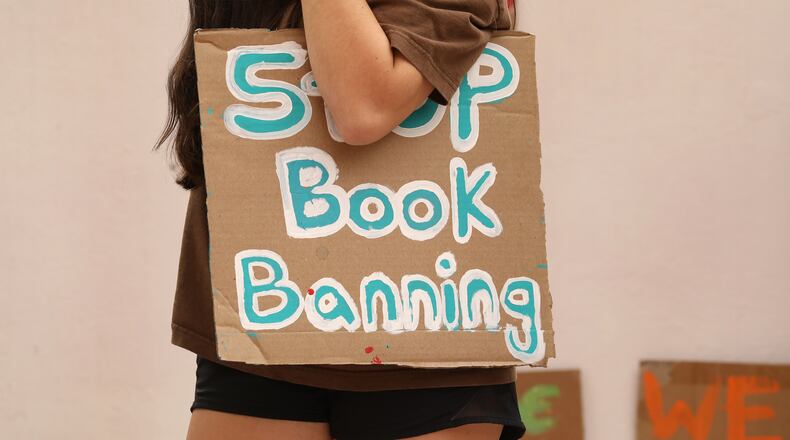“The Perks of Being a Wallflower” by Stephen Chbosky explores the world of being a teenager and highlights the path to self-discovery. It encapsulates the full teen experience, which is something not a lot of other books do well or with authenticity.
This subject matter can help those who struggle or have struggled in situations not dissimilar from those seen and experienced by characters in the book. This book is a gift to those who have experienced what it means to be human.
Credit: Contributed
Credit: Contributed
But this book and many others beloved by teen readers may soon be in jeopardy in school libraries in Bartow County. A group has organized to attend board meetings and challenge books, including “The Perks of Being a Wallflower.”
One Bartow County resident recently told school board members, “These kids are going to grow up and they’re not going to know right from wrong. They’re going to be filthy people who don’t care what they do because of these books.”
The assumption that books are responsible for defining the moral compass of children gives too much credit to both books and children. The most impactful external experience that influences children’s decision-making skills and morals is their parents. It is a parent’s job to teach their kids what the difference is between good and bad. The concept of knowing right from wrong is something taught in infancy, and the ideals and beliefs of a book written for teens or young adults will not impact this development in children.
Reading books does not influence the composition of a person, their morals, sexuality or political beliefs. Although these issues may exist within the context of a book, the point is not to advertise or promote controversial details. Instead, these details are used in conjunction with the theme of the story to provide a message to the reader.
While there is controversial content within “The Perks of Being a Wallflower,” the point of the book is to convey the message that Chbosky summarizes as, “We accept the love that we think we deserve.” The purpose of the book is to wrestle with this idea, to view the story holistically and not in its pieces.
Another Bartow resident lamented to the board: “Taxpayers’ money is being used to buy these books. Some say they’re trying to ban books. This, that, and the other. No, no. You can go and buy these books. I’m just complaining about the school system furnishing these books.”
Simply suggesting “you can go and buy these books” is a disservice to those from lower incomes. Not everybody has equal opportunities to purchase and read books; this is the very concept behind libraries.
Libraries are hubs of knowledge available to everyone for free, regardless of your salary. The argument could be made that you can still go to the Cartersville Public Library to check out these books, but this argument wraps back around the issue of equal opportunity. It costs gas money and time to go to the library, and not every household has a car.
These issues are all mitigated by the library of the school a student attends. These books in the school are easily and instantly accessible to every student, regardless of any of these outside factors.
Why should the opinions and beliefs of one group of people impact the accessibility of information they disagree with? Not everyone will share the beliefs of those who want the books removed. Their child isn’t forced to check these books out from the school library.
If parents have a problem with the content of a book, they can simply tell their children not to check it out. But they shouldn’t decide for me what books I read.
Life is beautiful, but with that beauty come pain, unhappiness and imperfections. In “Fahrenheit 451,” Ray Bradbury writes, “So now do you see why books are hated and feared? They show the pores in the face of life. The comfortable people want only wax moon faces, poreless, hairless, expressionless.”
Life isn’t perfect, and books can help us to better understand these complexities of life.
To make your voice heard on the issue of banned books in Bartow County schools, sign this petition in opposition to bans on books that teenagers value because they reflect their lives.
Max Odendahl is a recent graduate of Cass High School in Bartow County. He saw the impact of book bans while working in his high school library. He will be attending Kennesaw State University as a psychology major.
About the Author
Keep Reading
The Latest
Featured



